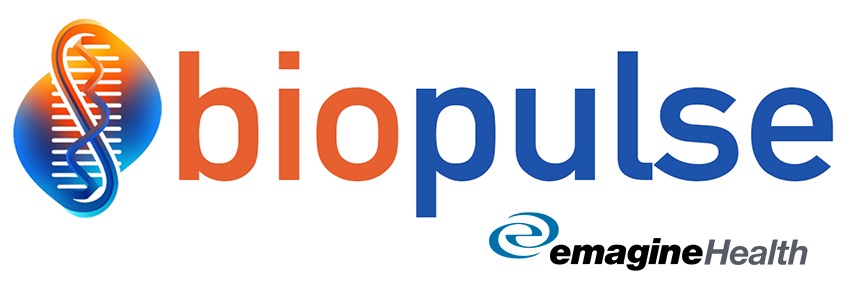biopulse Week of July 17, 2023: Your Weekly Biotech and Pharma Marketing Newsletter


Welcome to biopulse, your weekly briefing on key marketing trends and insights in the biopharma sector. Every week, I (Bill Gadless) probe top stories, studying product launches, branding, and communication. I’ll feature pivotal campaigns, innovative marketing tech, thought leadership and regulatory shifts reshaping healthcare engagement.
Week of July 10, 2023
❝ A quote (from me):
“In the face of trials from inflation, supply chain disruptions, geopolitical tensions, scarcity of private funding, and talent acquisition battles that have tested the biopharma industry since November 2021, we are now feeling the pulsing heartbeat of resurgence. As we gaze upon the horizon of 2023, we are not only witnessing, but palpably feeling the rekindled momentum, poised to propel this industry back to the forefront of global innovation and resilience.”
❝ Another quote (from someone else):
“If I were 21 years old, I would go into biotechnology or genetic engineering.”
Larry Ellison
🤔 Question for you:
How do you believe advances in personalized medicine and gene therapy will disrupt traditional marketing strategies in the biopharma industry?
📰 The Week’s Top Stories
FDA Greenlights Beyfortus, First RSV Injection for Infants
The FDA has approved Beyfortus, an injectable drug to protect children up to 2 years old from respiratory syncytial virus (RSV). This monoclonal antibody, developed by AstraZeneca and Sanofi, can be administered as a single shot during an infant’s first RSV season, with a second dose permitted for high-risk children in their second season. Acting through passive immunization, it directly delivers antibodies to the bloodstream. Sanofi plans to make the injections available ahead of the 2023-2024 RSV season. Beyfortus is the first monoclonal antibody approved to protect all infants in their first RSV season in the US.
Lilly’s Alzheimer’s Drug Donanemab Slows Disease Progression by Half a Year
Eli Lilly’s experimental Alzheimer’s drug, donanemab, has reportedly slowed the decline of the disease by roughly half a year in a key clinical trial. Donanemab, designed to eliminate toxic amyloid plaques in the brain, has shown patients declining 35% slower than those on a placebo. After 18 months of treatment, the drug delayed disease progression by five to seven months in certain patients. Despite its potential, concerns persist about brain swelling and bleeding side effects, additional treatment costs, and lack of diverse trial participants. Lilly expects an FDA verdict on the drug by year-end.
UnitedHealth Outperforms Estimates Despite Rising Medical Costs, Shares Surge
UnitedHealth Group’s stock price climbed following the announcement of Q2 revenue and adjusted earnings surpassing Wall Street’s predictions, easing investors’ worries over increased medical expenses. The healthcare giant also boosted the lower limit of its yearly adjusted earnings projection. Despite a surge in non-emergency surgeries and outpatient services, shares closed over 7% higher. UnitedHealth posted an adjusted earnings per share of $6.14, with revenue totaling $92.9 billion for the quarter. Amid rising medical costs, the company anticipates the general pace of healthcare activity to remain stable.
Medicare Drops Confidentiality Rule, Allows Public Discussion of Drug Price Negotiations
Medicare will now allow pharmaceutical companies to publicly discuss drug price negotiations, reversing a confidentiality requirement. The initial rule, which prohibited the industry from disclosing negotiation details, faced lawsuits from drugmakers claiming a First Amendment violation. The revised guidance grants companies the discretion to publicize information about ongoing negotiations. This change follows the Inflation Reduction Act’s empowerment of Medicare to negotiate drug prices directly with pharmaceutical companies for the first time, a key part of the Biden administration’s strategy to control increasing drug prices in the U.S.
FDA Disputes WHO’s Findings, Declares Aspartame Safe
The US Food and Drug Administration (FDA) has contradicted the World Health Organization’s (WHO) declaration that the soda sweetener aspartame could potentially be carcinogenic. The FDA stated that the research WHO based its conclusion on was notably flawed. The agency affirmed that aspartame poses no health concerns if consumed within recommended daily limits. This response was made shortly after WHO announced its findings, which drew a possible connection between aspartame and a type of liver cancer. Aspartame is used as a sugar substitute in roughly 6,000 global products.
BMS Collaborates with Ex-Soccer Player for Ulcerative Colitis Awareness Campaign
Bristol Myers Squibb (BMS) has launched a campaign, “Supporting You with UC”, leveraging the Women’s World Cup to raise ulcerative colitis awareness. BMS has partnered with ex-soccer player and ulcerative colitis patient Rosie White, who also uses BMS’s Zeposia. The campaign shares White’s story and struggles with the condition, from symptoms to diagnosis and finding effective treatment. The initiative is part of BMS’s strategy to maintain momentum for Zeposia, which saw a sales increase of 87% last year, and to compete effectively in the ulcerative colitis treatment market.
Biogen Faces Biggest Brand Value Decline Amidst Difficult Year for Pharma
Biogen saw a 39% decrease in brand value in an annual review by Brand Finance, making it the most significant loser amid controversy around its Alzheimer’s drug, Aduhelm. Other pharmaceutical companies, including AbbVie, GSK, and Astellas, also experienced significant brand value reductions ranging from 19% to 23%. Despite brand value dips, Johnson & Johnson, Roche, and Pfizer remained at the top. Notably, Merck & Co. and Eli Lilly saw the largest brand value increases among Big Pharma companies, with CSL and Novo Nordisk as the overall biggest gainers.
Lilly Extends Olympics Partnership Through 2028 to Promote Health Messaging
Eli Lilly is extending its partnerships with the Olympics, Team USA, and NBCUniversal through 2028, which will see the pharmaceutical company promote awareness for treatments related to diabetes, cancer, and other conditions. Lilly’s new deal includes collaboration with the 2028 Los Angeles Olympic and Paralympic Games. The updated agreement designates Lilly as an “official Team USA partner in prescription medicine and health equity”. The partnerships will allow Lilly to make significant marketing pushes during the Summer Olympics in Paris and Los Angeles, and the Milan 2026 Winter Olympics.
J&J Sues U.S. Government in Attempt to Block Medicare Drug Price Negotiations
Johnson & Johnson has sued the U.S. government, joining other pharmaceutical giants in challenging a policy that allows Medicare to negotiate lower drug prices. The policy, part of President Biden’s Inflation Reduction Act, is expected to save $25 billion annually by 2031, but pharmaceutical companies argue that it will reduce profits and hinder the development of new treatments. Bristol Myers Squibb, Merck & Co, and industry groups have also sued the government over this plan. J&J’s suit claims that the program is unconstitutional and the forced price reductions equate to “confiscation of constitutionally protected property.”
Westlake Village BioPartners Launches $450M Fund and Installs New Leadership Team
Westlake Village BioPartners has announced a $450 million third fund to nurture early-stage biotech companies. This oversubscribed fund boosts the firm’s total to $1.3 billion since its inception in September 2018. The new fund will be overseen by newly-appointed managing director David Allison, Ph.D., alongside existing directors Beth Seidenberg, M.D., and Mira Chaurushiya, Ph.D. This investment will enable Westlake to incubate and grow startups, creating transformative therapies. Westlake, which played a pivotal role in developing the Los Angeles Biotech Hub, plans to continue expanding in this innovative ecosystem.
Pharma Industry Spends More on Clinical Trials Than NIH: Study
A new report published in the JAMA Health Forum indicates that the pharmaceutical and biotech industry’s investment in clinical trials vastly surpasses that of the U.S. National Institutes of Health (NIH). Researchers found that between 2010 and 2019, the NIH spent $8.1 billion on phased clinical trials, which only constituted around 10% of what the industry spent during the same period. The NIH funds primarily go towards basic and applied research. These findings may inform policies on the utilization of government funds to bring new drugs to market and encourage further investigation into public-private sector collaboration.
Pfizer and Flagship Pioneering Form $7B Deal for 10-Program Drug Pipeline
Pfizer and Flagship Pioneering have partnered in a $100 million deal to construct a pipeline of 10 drug development programs. Pfizer could potentially offer up to $700 million in ‘biobucks’ per successful drug to Flagship and its bioplatform companies. The upfront amount will be utilized to explore opportunities within Flagship’s ecosystem that could lead to the creation of these programs. The collaboration is a part of Pfizer’s strategic focus on vaccines, inflammation/immunology, oncology, rare diseases, and internal medicine.
🧬 Other Stuff
A Call to Biopharma – When it Comes to Clinical Trial Recruitment, Do More.
This short video sheds light on the challenges faced in meeting clinical trial enrollment targets and the high costs associated with new drug development. I also discusses the urgency of bolstering marketing and recruitment efforts for successful clinical trials.
emagineHealth is the digital-first, AI-powered agency for healthcare and life sciences. Let’s work together to maximize the results of your digital marketing initiatives.

Social Media for Healthcare & Biopharma
emagineHealth outlines the critical steps you can take now to show up on social media with a proven strategy to get your message across, reach your target audiences, and accomplish your social media goals.